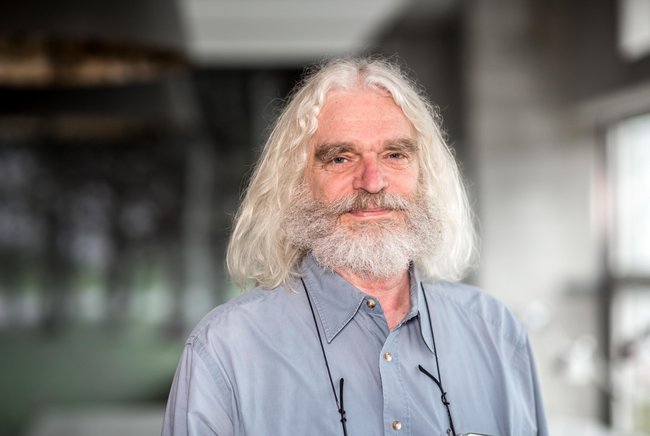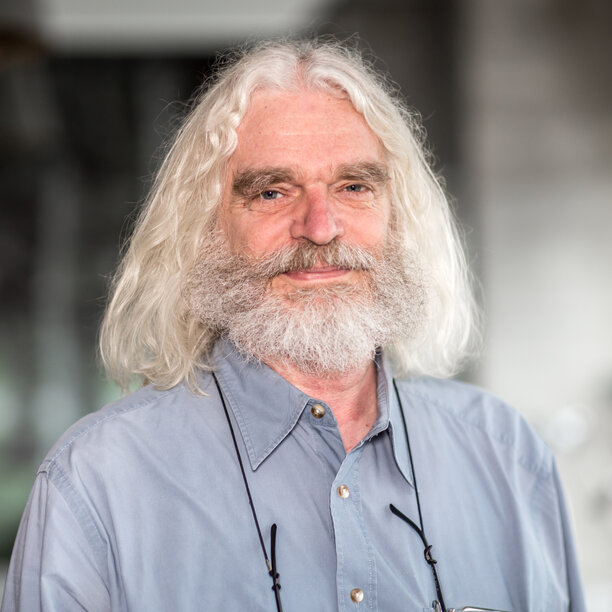In Memoriam | Armin Kohlrausch
On 25 March 2022, the sad news reached us that our colleague and friend Armin Kohlrausch passed away suddenly and unexpectedly while attending DAGA 2022, a conference in Stuttgart.

Prof. dr. Armin Kohlrausch was a leading scientist in the field of psychoacoustics and multisensory perception. He studied physics in Göttingen and specialized in the field of acoustics. He obtained his PhD degree in 1984 on perceptual aspects of sound at the Georg-August-Universität Göttingen, where he continued to work at the Drittes Physikalisches Institut until 1990.
In 1991, he joined the Institute for Perception Research (IPO) – a joint venture between Philips Research (NatLab at the time) and TU/e. Since 1998, he combined his work at Philips Research with a professor position at TU/e in the field of auditory and multisensory perception, as a member of the Human-Technology Interaction (HTI) group at the department of IE&IS. He retired from Philips in 2016. His retirement from TU/e followed four years later, in 2020. However, Armin continued to remain active as a researcher, supervisor and a highly valued member of our academic community.
a scientist of great versatility
Armin was a scientist of great versatility. His research into spatial sound experience was an important component of his work. He and his students made significant contributions to an understanding of why we hear certain sounds so much better with both ears than with one, and what the limits are exactly to that improved perception. That understanding later also contributed significantly to the development of a new type of audio coding algorithm, developed at Philips NatLab.
But Armin’s contributions reached much further. He was a pioneer in the field of modeling of auditory and multisensory perception in humans and developed, in collaboration with his students, models that operate as ‘artificial observers,’ which made these models more suitable for general use than any previous model. Armin also published much-cited papers about the perception of audiovisual synchrony and identified several new factors affecting synchrony. His curiosity, however, was even more wide-ranging and included, among other things, the perception of room acoustics, the soundscape in intensive care units in hospitals, Music Information Retrieval, and the history of psychoacoustics.
Armin gained wide recognition and appreciation for his work. He was aFellow of the Acoustical Society of America and served as Associate Editor for the leading Journal of the Acoustical Society of America, as well as for the Journal of the Association for Research in Otolaryngology and for Acta Acustica united with Acustica. In 2017, he was honored with the prestigious Helmholtz Medal, the highest distinction of the Deutsche Gesellschaft für Akustik (DEGA), for his exceptional contributions to psychoacoustics, auditory modeling, and multisensory perception. In 2019, DEGA awarded him its honorary membership.
a deeply devoted supervisor and mentor
Armin was a deeply devoted supervisor and mentor to his students. With his sharp analytical insight and approach, he questioned many, perhaps not completely well-thought-out ideas from his students in a friendly way, only to arrive at a better understanding together and to develop truly novel hypotheses and theories.
a special human being
But above all, Armin was a special human being. With his striking appearance – long, grey-white hair and full white beard – he came across in some ways as the prototypical, old-fashioned professor, who spoke in a charming German accent. My children, when they were young, mistook him for an off-duty Sinterklaas, interesting and impressive, a role he embraced with a twinkle in his eye. Armin was warm and friendly, completely averse to pretense and hierarchy, and genuinely interested in the people and the world around him. No Twitter, LinkedIn or Facebook for him, but actual human contact in the real, physical world – preferably in an informal setting, during lunch or dinner, enjoying a good glass of wine.
He paid regular visits to his PhD candidates and colleagues at their offices, with a big smile on his face and a casual “do you have a moment?” Before you knew it, an hour had passed during which a variety of topics could be discussed, ranging from in-depth scientific discussions to personal anecdotes about his nephews and nieces in Germany, whom he adored. He loved music and making music together – he added luster to several festivities, wedding parties and PhD ceremonies with his bass voice and violin. Armin was also a nature-lover, as well as an ardent hiker and cyclist. In his younger years, he and his wife Claudia went on long walking and cycling tours through Scandinavia and regularly visited his beloved Wadden islands. He returned to the Wadden every year, first together with Claudia and later, after her passing in 2015, by himself.
Armin remained active in the years after his retirement, both as a scientist and in social life. He received several invitations for lectures and keynotes, and was widely appreciated for his work. During our last HTI group outing one year ago, he told his colleagues how happy he was with the large variation and balance in his many roles and activities. One day, he would be at the chess club teaching seven-year-olds, the next day he attended an IEEE meeting on audio engineering and human perception, or he would have a guest appearance as Dumbledore in a video production from his nephews and nieces.
He enjoyed life, and generously shared that joy with others. After years of online meetings and hybrid conferences, he was glad to be able to physically attend his favorite conference in Germany again. I imagine that his last conscious thought was one of connection with others. We will miss him.
Also on behalf of his (former) colleagues and friends at HTI and TU/e,
Wijnand IJsselsteijn
